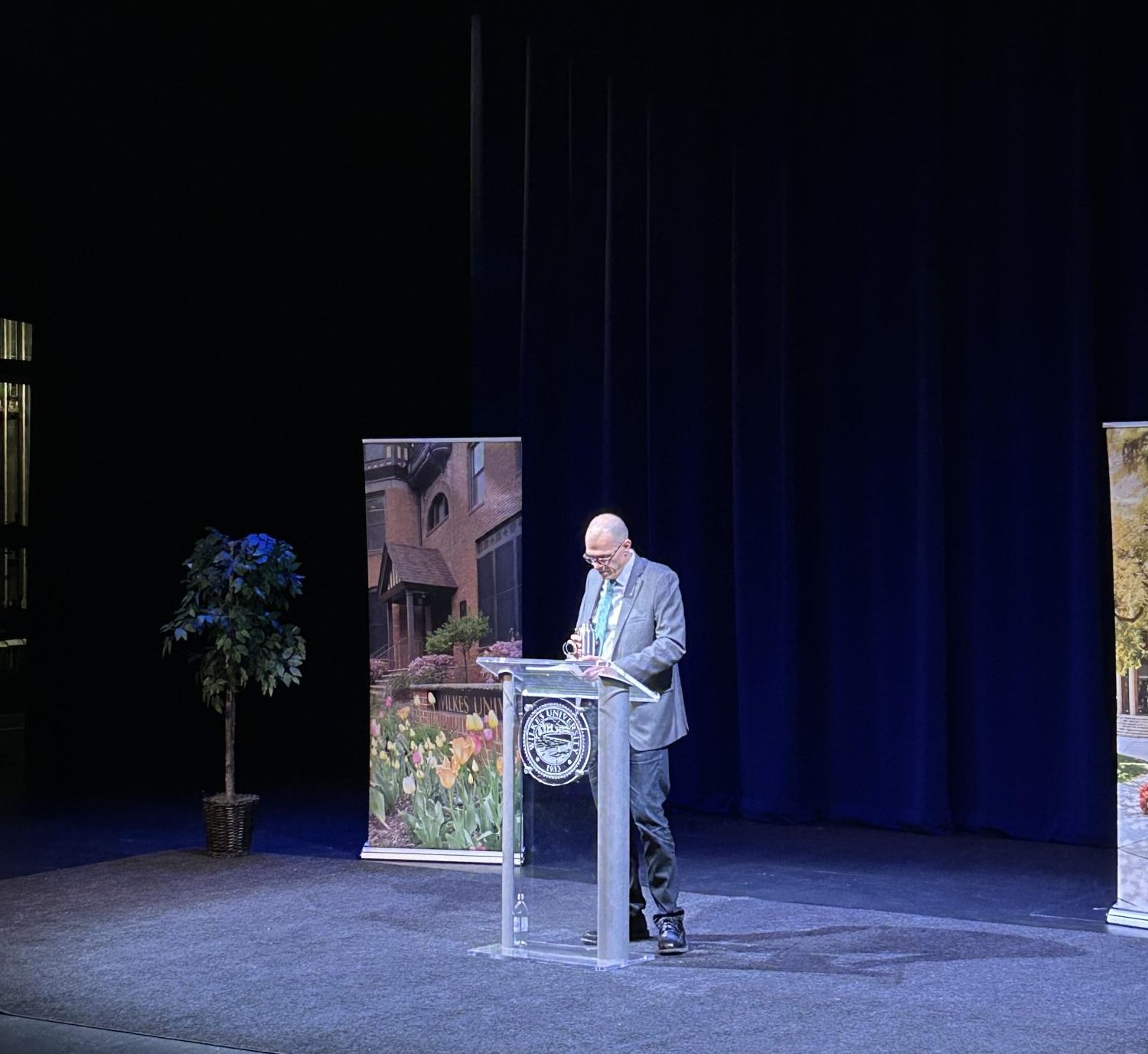New York Times bestselling author and winner of the 2017 Man Booker prize, George Saunders visited Wilkes University on Tuesday, April 15.
Saunders is a highly regarded writer. He was selected as one of the top 100 most influential people in TIME Magazine. He has written 12 novels, including “Lincoln in the Bardo.” Several students in the Wilkes English department have been reading this novel for a course this semester.
Saunders’ visit concluded this year’s Allan Hamilton Dickson Spring Writers series.
Saunders began his visit by stopping by Dr. Larry Kuhar’s poetry workshop class to give advice and answer questions from students taking the course.
“Art was made to connect us with our reality,” Saunders said. “No matter where you stand politically or socially, it’s the truth.”
Despite not working with poetry often, Saunders’s insight on writing fiction as a whole was relevant and helpful for students. Saunders introduced a technique to the students of Kuhar’s class that he has shown to the students of his creative writing program at Syracuse.
The technique is called “the needle,” in which the enjoyment of a piece, novel, poetry, etc. would be determined by where this imaginary needle would move. This needle reference was heavily noted for use during the editing and revision process of writing.
“If the needle moves too far left, like losing gas, you know where you’ve made a mistake,” Saunders explained.
Later, Saunders held an extended Q&A session with English majors and minor students. This event was held at the Kirby Hall Salon and after this session, some students joined him and some English department staff to Weckesser Hall for a dinner with Saunders.

At 7 p.m., the English department chair Dr. Thomas Hamill introduced George Saunders at the Dorothy Dickson Darte Center. His visit included a talk, Q&A and book signing that was open to those who signed up for the event online.
Saunders began his talk that revolved around the theme, “Why Fiction Matters,” by saying that we all exist by stories, even if we don’t realize it.
In this talk and Q&A he talked about how his Buddhist beliefs and political beliefs helped shape his work as well as working alongside with his wife who is also a novelist.
When asked about the impact of AI and writing, Saunders said, “AI cannot go into a coffeeshop in their 40s and find inspiration. The human experience is the key factor that separates it from ever coming close to human creativity.”
The final event drove in a massive crowd that curated a long line for his book signing after the event.